How is the Australian Association of Social Work Promoting Social Work Identity?
Welcome back to the Social Work Café blog.
In this post, I share some highlights from my exciting conversation in episode 02 with Cindy Smith, who is the Chief Executive Officer of the Australian Association of Social Work (AASW).
I first met Cindy back in 2020, as the pandemic was raging.
So, picture this... I was tucked away in my lockdown bubble, going about my academic business, and trying to survive an unprecedented global catastrophe.
Can you imagine what it was like when, out of the blue, I got an email from the CEO of our national social work body requesting a meeting to talk about my research on sustaining professional identity?
Seriously, I almost fell out of my chair. This kind of thing does not happen to me!
Well, of course I would say yes; I could talk about professional identity in social work forever.
Still, I was nervous going into the meeting and didn’t want to come across as the weird academic who obsesses over professional identity but has nothing practical to say.
Those nerves were misplaced because the second I met Cindy, in true social work form, she put me at ease by complimenting my research
Side note: chocolate is the easiest way to get to my heart, followed closely by compliments on my research, of course.
At that meeting, we talked about Cindy’s work and how she really wants to promote social work identity through the AASW.
Fast forward to 2023!
It was wonderful to speak with Cindy for the podcast and hear how much things have changed at the AASW under her leadership (click here to listen to Cindy speak on the topic of leadership)
Cindy shares fascinating insights from her journey as a new graduate at the turn of the 21st century, where trends of de-professionalisation were accelerating.
Cindy entered the human services sector when social work job titles were being increasingly replaced with generic job titles.
Those changes are reflected in all of the jobs that Cindy described being employed in.
Because of these systemic trends, Cindy explains that our career pathways have been less clear, and our pay structures have been devalued compared to other professions.
This has meant that social workers and the AASW have had to advocate much harder to gain professional status.
To me, a lot of these issues, particularly around pay, also stem from a legacy of sexism levelled at social work, where we have often been decried as bleeding hearts doing “women’s caring work.”
I loved Cindy’s story about becoming CEO and then, not long into the role, discovering the need for systemic structures in the AASW that can promote social work identity.
Some of the big changes they have made at the AASW in recent years include:
· A national mentoring programme for newly qualified social workers.
· National awards that celebrate social workers and their achievements.
· A community hub (where you can build networks with other social workers).
· Updating our practice standards, which includes a new standard specifically on professional identity.
I can hardly believe the numbers that are going through that mentoring programme and that they now have a waiting list!
Another thing that really struck me was Cindy’s dedication to learning more about the origins of social work and the AASW, so that she could better understand how that past continues to impact our professional status today.
I left our conversation with a renewed passion for learning because, in order to continue to improve the profession, we really must take the time to learn from our past.
More reading, thinking, and studying for me!
I was particularly interested to know what Cindy’s definition of social work would be.
As CEO, she sits at a national level and oversees all the work the association undertakes, including developing professional standards and advocating with government ministers.
So here is her definition:
Social workers help to build the kind of environments that we want to live in; we work with people to bring about positive change; to overcome and to support people through challenges, and really to create an environment in which they want to work and live in as well.
Cindy goes on to summarise that definition even further: “…it is that broader change, but working with individuals and with communities to affect change.”
In other words, social work is multidimensional, and we need all types of social workers to achieve our common goals.
I particularly like how she emphasises building environments and affecting positive change.
What do you think of Cindy’s definition?
It has been such a privilege to have this kind of in-depth conversation with Cindy.
Her candour and openness to reflecting on her journey and where the AASW needs to head in the future are really refreshing.
Plus, she complimented me several times, so of course I am going to love her.
I agree with Cindy that our profession has the core skills that societies will need in the future, and over the next 5–10 years we can be at the forefront of some really important systemic changes by, in her words, “mobilising communities.”
The AASW has come a long way over its 75 years of existence, and with Cindy’s energy, I think we could go even further to achieve goals around registration and advancing the profession.
Never underestimate a social worker on a mission!
You can find more information about the AASW on their website, including details about membership.
I also highly recommend that you follow them on Facebook.
The future is social work, so strap yourselves in and get involved.
See you next time in the Social Work Café.
Dr. B

